Fleurs du Mal Magazine


Or see the index
Du vitriol, du sucre, du vice et de la vertu déversés dans un cocktail explosif tracé de mon stylographe corrosif.
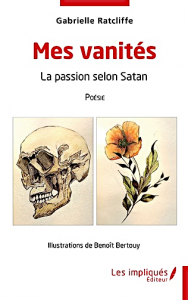 Vous trouverez dans cet ouvrage des réactions à l’intolérable, des rédemptions aimables et le récit d’angoisses et de poisse.
Vous trouverez dans cet ouvrage des réactions à l’intolérable, des rédemptions aimables et le récit d’angoisses et de poisse.
Un verre de prose légère et particulière, qui je l’espère, ne saura vous déplaire. A consommer sans modération.
Gabrielle Ratcliffe, née à Munich, manie le langage avec passion dans toute sa richesse. Aussi, les mots qu’elle dresse et adresse finissent par rendre ses écrits simples et limpides.
Elle noircit sans cesse le papier où qu’elle soit et quelle que soit son humeur. Singulière parce que plurielle !
Benoît Bertouy, dessinateur au cœur de génie, illustre avec parcimonie et rigueur, de son crayon, magique, sa prose, telles deux âmes sœurs.
MES VANITÉS
La passion selon Satan.
Poésie
Gabrielle Ratcliffe
Illustrations de Benoit Bertouy
Les Impliqués
Editions L’HARMATTAN
Date de publication: 13 décembre 2022
Langue: Français
Broché format: 13,5 x 21,5 cm
174 pages
ISBN : 978-2-38417-707-3
EAN13 : 9782384177073
Livre papier:
€ 17,5
• fleursdumal.nl magazine
More in: #Editors Choice Archiv, - Book News, - Bookstores, Archive Q-R, Archive Q-R
Marieke Lucas Rijneveld komt met een nieuwe roman.
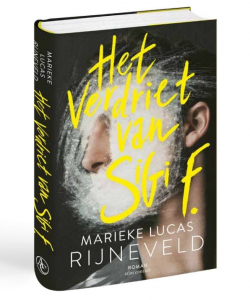
In de fictiebrochure van Atlas Contact staat een vooraankondiging van de nieuwe roman van Rijneveld.
Het verdriet van Sigi F. is de titel. Wanneer deze roman precies verschijnt is nog niet duidelijk (voorjaar, zomer, najaar?). Over de inhoud is verder ook nog niets bekend.
Marieke Lucas Rijneveld
Het verdriet van Sigi F.
Roman
• fleursdumal.nl magazine
More in: #Editors Choice Archiv, - Book Lovers, - Book News, - Bookstores, Archive Q-R, Archive Q-R, Marieke Lucas Rijneveld, Rijneveld, Marieke Lucas
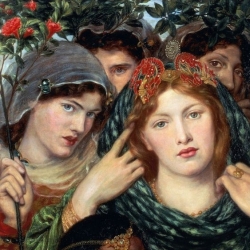
A New-Year’s Burden
Along the grass sweet airs are blown
Our way this day in Spring.
Of all the songs that we have known
Now which one shall we sing?
Not that, my love, ah no!—
Not this, my love? why, so!—
Yet both were ours, but hours will come and go.
The grove is all a pale frail mist,
The new year sucks the sun.
Of all the kisses that we kissed
Now which shall be the one?
Not that my love, ah no!—
Not this, my love?—heigh-ho
For all the sweets that all the winds can blow!
The branches cross above our eyes,
The skies are in a net:
And what’s the thing beneath the skies
We two would most forget?
Not birth, my love, no, no,—
Not death, my love, no, no,—
The love once ours, but ours long hours ago.
Dante Gabriel Rossetti
(1828 – 1882)
A New-Year’s Burden
• fleursdumal.nl magazine
More in: *The Pre-Raphaelites Archive, Archive Q-R, Archive Q-R, Lizzy Siddal, Rossetti, Dante Gabriel
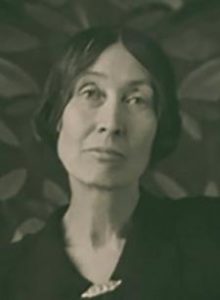
Submerged
I have known only my own shallows –
Safe, plumbed places,
Where I was wont to preen myself.
But for the abyss
I wanted a plank beneath
And horizons…
I was afraid of the silence
And the slipping toe-hold…
Oh, could I now dive
Into the unexplored deeps of me –
Delve and bring up and give
All that is submerged, encased, unfolded,
That is yet the best.
Lola Ridge
(1873-1941)
Submerged
• fleursdumal.nl magazine
More in: Archive Q-R, Archive Q-R, Ridge, Lola
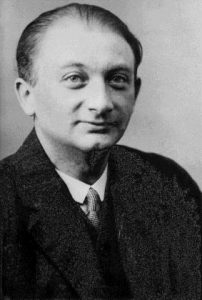
Lied der ungeborenen Kinder
Wir sind nur ein leises zartes Wehen
Ihr könnt uns nicht sehen
Wir sind nur Gedanken und leichter als Hauch
Aber wir leben auch.
Wir sind nie gewesen, wir durften nicht sein
Nur Wünsche sind wir, nicht Fleisch und nicht Bein
Eure innigsten Träume waren wir mal
Und sind jetzt Eure Qual.
Wir schweben um Euch als leichter Duft
Ihr greift nach uns und greift die Luft
Wir sind gar nicht da und Ihr könnt uns nicht fassen
Ihr müsst uns hassen.
Nur in manchen Träumen fangt Ihr uns ein,
Dann liegen wir an Euren Herzen
Und träumen lächelt Ihr der Schmerzen
Und denkt nicht der Qualen, die wir Euch gemacht,
Bis Ihr erwacht.
Joseph Roth
(1894 – 1939)
Lied der ungeborenen Kinder
• fleursdumal.nl magazine
More in: Archive Q-R, Archive Q-R, Joseph Roth
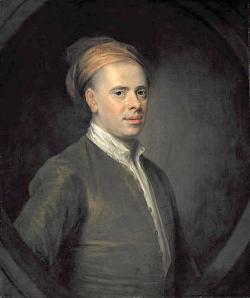
Peggy
My Peggy is a young thing,
Just enter’d in her teens,
Fair as the day, and sweet as May
Fair as the day, and always gay.
My Peggy is a young thing,
And I’m not very auld,
Yet well I like to meet her at
The Wawking of the Fauld.
My Peggy speaks sæ sweetly,
When’er we meet alane,
I wish næ mair to lay my care,
I wish næ mair of a’ that’s rare.
My Peggy speaks sæ sweetly,
To a’ the lave I’m cauld;
But she gars a’ my spirits glow
At Wawking of the Fauld.
My Peggy smiles sæ kindly,
Whene’er I whisper Love,
That I look down on a’ the Town,
That I look down upon a Crown.
My Peggy smiles sæ kindly,
It makes my blythe and bauld,
And naithing gi’es me sic delight,
As Wawking of the Fauld.
My Peggy sings sæ saftly,
When on my pipe I play;
By a’ the rest it is confest,
By a’ the rest, that she sings best.
My Peggy sings sæ saftly,
And in her songs are tald,
With innocence the wale of Sense,
At Wawking of the Fauld.
Allan Ramsay
(1684-1758)
Peggy
• fleursdumal.nl magazine
More in: # Classic Poetry Archive, Archive Q-R, Archive Q-R

The Destroyer
I am of the wind…
A wisp of the battering wind…
I trail my fingers along the Alps
And an avalanche falls in my wake…
I feel in my quivering length
When it buries the hamlet beneath…
I hurriedly sweep aside
The cities that clutter our path…
As we whirl about the circle of the globe…
As we tear at the pillars of the world…
Open to the wind,
The Destroyer!
The wind that is battering at your gates.
Lola Ridge
(1873-1941)
The Destroyer
• fleursdumal.nl magazine
More in: Archive Q-R, Archive Q-R, Ridge, Lola

Natur
Hinter den Häusern der Stadt, dort wo die Verbotstafeln
stehn,
beginnt Gottes freie Natur, die den Menschen gehört.
Parzelliert und in Grundbüchern eingetragen sind
die Quellen, die Äcker, die Wälder, der Wind,
die Tannen, die Eichen, die Buchen, die Linden,
die Hasen, die Hirsche, der Lerchenschlag,
der Mond in den Nächten, die Sonne am Achtstundentag
und die Vögel, die, von Sorgen angeblich unbeschwert,
die segensreiche Ordnung dieser Welt verkünden – –
Leibeigene Eichkätzchen springen auf Eichen,
als wären sie unabhängig vom Kapital – –
und wissen nicht, daß unterdessen Förster ohne Zahl
auf hinterlistigen Pfaden zum Schießen schleichen – –
Nur die Schriftsteller wandern umher und werden Wunder
gewahr
und schreiben Gedichte, Skizzen und Romane,
sie leben in ihrem göttlichen Wahne
und sterben vom menschlichen Honorar.
Joseph Roth
(1894 – 1939)
Natur
Lachen links – 1. 2. 1924
• fleursdumal.nl magazine
More in: Archive Q-R, Archive Q-R, Joseph Roth, MUSEUM OF NATURAL HISTORY - department of ravens & crows, birds of prey, riding a zebra, spring, summer, autumn, winter

The author’s address to
The Town Council of Edinburgh
Your poet humbly means and shaws.
That, contrair to just rights and laws,
I’ve suffer’d muckle wrang.
By Lucky Raid * and ballad-singers,
Wha thumb’d with their coarse dirty fingers
Sweet Adie’s funeral sang.
They spoil’d my sense, and staw my cash.
My muse’s pride murgully’d ;
And printing it like their vile trash.
The honest lieges whilly’d.
Allan Ramsay
(1684-1758)
The author’s address to The Town Council of Edinburgh
* A printer’s relict, who, with the hawkers, reprinted my pastoral on Mr. Addison, without my knowledge, on ugly paper, full of errors.
• fleursdumal.nl magazine
More in: # Classic Poetry Archive, Archive Q-R, Archive Q-R

Soldaten
Alle haben diesen müden
seltsamen Zug in den bleichen Gesichtern:
In ihren Augen zittert ein schüchtern
taumelndes Ahnen von Heimat und Frieden . . .
Alle tragen sie an den müden
Füßen den Staub von zerwanderten Jahren:
Durch viele Länder sind sie gefahren
und haben noch nicht nach Hause gefunden . . .
Manchmal nur röten sich ihre Wangen,
wenn sie frohe Kunde erlauschen,
und sie sitzen zusammen und tauschen
flüsternde Reden von süßem Verlangen . . .
Ihre harten, zerrissenen Hände
faltet die Demut, und kindheitsverwehte
Worte fassen sie still im Gebete:
Herr, mach ein Ende! O Herr, gib ein Ende! . . .
Joseph Roth
(1894 – 1939)
Soldaten
Prager Tagblatt – 10.2.1918
• fleursdumal.nl magazine
More in: Archive Q-R, Archive Q-R, Joseph Roth
Gustave Roud, perhaps the most beloved poet of Swiss Romandy, is widely considered the founder of modern francophone Swiss literature, along with Charles-Ferdinand Ramuz.
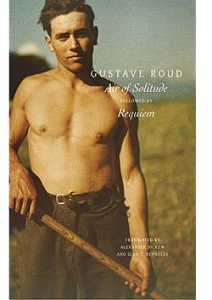 Roud lived at his grandfather’s farm in Carrouge, Canton Vaud, for his entire life. In Air of Solitude, the first section of this two-part book, he stalks the structures and fields of his youth, composing memories out of his landscape.
Roud lived at his grandfather’s farm in Carrouge, Canton Vaud, for his entire life. In Air of Solitude, the first section of this two-part book, he stalks the structures and fields of his youth, composing memories out of his landscape.
The narrator appears homegrown, expressing nostalgia for what is already in front of him. Yet, like an outsider, he remains distinctly elsewhere, unable to participate in the workday rituals of the men around him—a stalking shadow of unfulfilled yearning for affection and belonging. Air of Solitude explores the rural bodies and lives of the Vaudois, returning again and again to the desired male laborer Aimé.
Between each section of Air of Solitude, Roud inserts short vignettes that provide fleeting and lyrical images that resemble allusions to half-forgotten memories. However, Roud leaves the relationship between the titled sections and the interludes ambiguous.
As the book concludes with Requiem, the remnants of narrative shatter, leaving behind only the spectral tatters of memory as Roud confronts the enigma of loss in peerless, jewel-studded elegiac prose. With these two tales, Roud revives the pastoral tradition and injects it with distinctly modernist anxiety and disillusionment.
‘Gustave Roud made all of French-speaking Switzerland dream poetically upon itself, the land that welcomed European Romanticism from Rousseau to Byron, from Lamartine to Shelley. His poetry could seem idyllic, sustained by an ethereal figure of constantly conflicted desires (more or less unspeakable, always displayed), and a moral, sacrificial figure inspired, above all, by Novalis and Hölderlin.’—Antonio Rodriguez, University of Lausanne
Gustave Roud (1897–1976) was a major Swiss poet and photographer whose neoromantic poetic prose influenced a generation of poets including Maurice Chappaz and Philippe Jaccottet. His works include Ecrits (1950) and Campagne perdue (1972). He also translated German writers including Rilke, Hölderlin and Novalis.
Gustave Roud
‘Air of Solitude’ Followed by ‘Requiem’
Translated by Alexander Dickow and Sean T. Reynolds
ISBN: 9780857426871
Pages: 172
Rights: UCP
Publication Year: 2020
Format: Hardback
Size: 5″ x 8″
Publisher: Seagull Books
£16.99
• fleursdumal.nl magazine
More in: #Editors Choice Archiv, - Book News, Archive Q-R, Archive Q-R
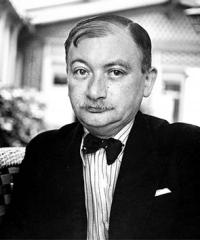
Nervenschock
Seht her: In einem Zauberknäul gebannt
schlottert und taumelt er an schwanker Krücke,
bald hart am Pflasterrand und bald zurück
prallt klappernd sein Gebein an rauher Wand.
Und aller Augen sind ihm zugewandt:
der frechen Neugier und des Mitleids Blick – –
ein Kind, das spielt, hält mitten still im Glücke,
als blick’ es plötzlich in ein dunkles Land . . .
Oh, seht ihn an! In graues Tuch gewandet,
der Menscheit Heldentum in torkelndem Zick-Zack
zwei Kreuzchen scheppern und zwei Bänder
fliegen – – –
Im roten Meer von Blut und Siegen
ist des Jahrhunderts stolzes Schiff gestrandet –
und das ist Euer Wrack! . . .
Joseph Roth
(1894 – 1939)
Nervenschock
Prager Tagblatt – 6.10.1918
• fleursdumal.nl magazine
More in: Archive Q-R, Archive Q-R, Joseph Roth
Thank you for reading Fleurs du Mal - magazine for art & literature